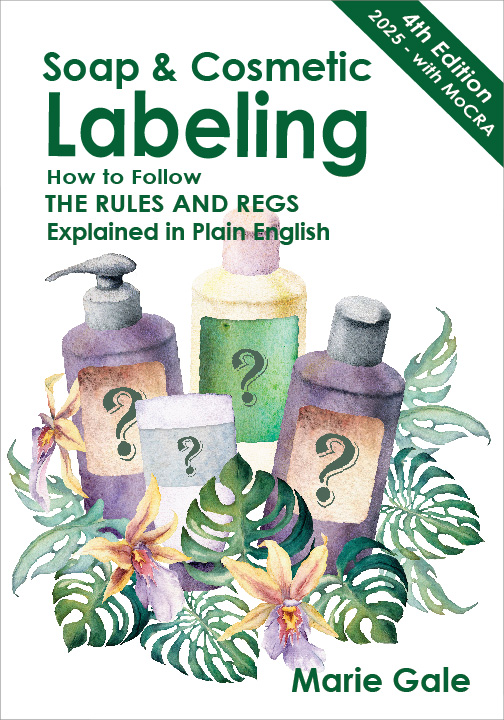I get many questions about product claims along the lines of, “What can I say about what my product can DO?”
When I answer “not much,” I sometimes get a digruntled comment about the unfairness of the regulations or the unreality of the FDA generally.
I feel your pain.
However, I’ve delved a little into the history and I actually read many of the warnings the FDA currently sends out. I believe I have acquired some small insight into what they are dealing with, even if I’m only seeing the tip of the iceberg.
Honey… For Men
Just recently the FDA issued 4 warning letters1 to companies illegally selling honey-based products that could pose a “significant health risk to consumers.”
These four companies were promoting their honey as either a food or a dietary supplement with names like Dose Vital Honey for Men, Secret Miracle Royal Honey for Her, and Royal Honey for Him.
Was this honey contaminated with bacteria or mold? Nope. Did it contain insect parts or plant matter? Nope.
The problem with these honey products is that they contained tadalafil or sildenafil—the active ingredients used to treat erectile dysfunction in Cialis® and Viagra® respectively.2
Of course, those ingredients weren’t included in the ingredient declaration; the FDA tested the products and determined that they contained tadalafil or sildenafil.
One company claimed the product would, among other things :
- Prevent arthritis and multiple sclerosis
- Accelerate the healing and consolidation of fractured bones
- Lower cholesterol
- Reduce… anxiety states, insomnia, and anorexia
Another claimed that, “Being a product of nature, royal honey possesses nutrients that decrease the risk of prostate illness and other reproductive system conditions.” Wow.
All Kinds of Wrong
What these companies were doing is all kinds of wrong—legally and ethically. This is the far end of the spectrum of off-the-chart claims for both a product and an ingredient, and utter dishonesty when it comes to a complete ingredient declaration.
This isn’t the first time I’ve seen a string of warning letters like this, all addressing one similar topic. There were a bunch of warning letters about products containing CBD, another series of warnings addressing CBD to treat pets, and earlier there was a spate of warnings for nutritional supplements “for men” which also contained tadalafil or sildenafil.
That level of complete disrespect for the existing laws and regulations by a few criminals is no doubt very trying and troublesome to the folks at the FDA who are trying to keep the food, drugs, and cosmetics on the market SAFE. I know I certainly would be more than a little frustrated!
It’s pretty easy to see how one could lose sight of the fact that it’s just a few people who step so far over the line. It’s not the majority by any stretch. But to those in the trenches, faced with it every day, I can see how more regulations might seem like a way to fix it—even though it would be the complying majority who would feel it the most.
Cosmetic Product and Ingredient Claims
Of course, none of these products were cosmetics: they were all products that could be ingested and sold under the guise of food or nutritional/dietary supplements. It’s a lot easier to make outrageous claims about ingested products since people already know that putting something into your system is likely to do something. They can be duped into thinking it was the named ingredient (the honey) and not the hidden ingredient (the tadalafil or sildenafil).
Cosmetics are a lot harder to hype up to that level of extreme, but a lower level is often so tempting.
Resist all temptation to say that your cosmetic product is going to cure this or that, or even that it will help with the redness, itching, eczema, bites, puffiness, or whatever. Or that an ingredient is “known to” help with this or that physical condition. There’s no reason to give the FDA any more grief than they already have from real criminals.
Go ahead and put those marvelous ingredients in your product and make the very best product you can! Just don’t tell the customer that it’s going to DO something more than increase their attractiveness, make them (more) beautiful, or simply alter their appearance somehow.
We are still lucky in the United States that despite any furor in the media, cosmetics are generally sufficiently safe and self-regulated that we don’t have any pre-approval required. That’s ESPECIALLY true for handcrafted soap and cosmetics!
Let’s keep it that way.

Shameless plug!
To really be able to create your own labels that comply with the regulations, get my book from Amazon and use it.
4th Edition – Released March 5, 2025!!!
Or order directly from me (and get a signed copy)!
- FDA Warns Four Companies for Selling Tainted Honey-based Products with Hidden Active Drug Ingredients. July 12, 2022 ↩︎
- The side effects and interations of these drugs could be harmful or even fatal to people with certain physical conditions or taking other prescription drugs. ↩︎


Leave a Reply